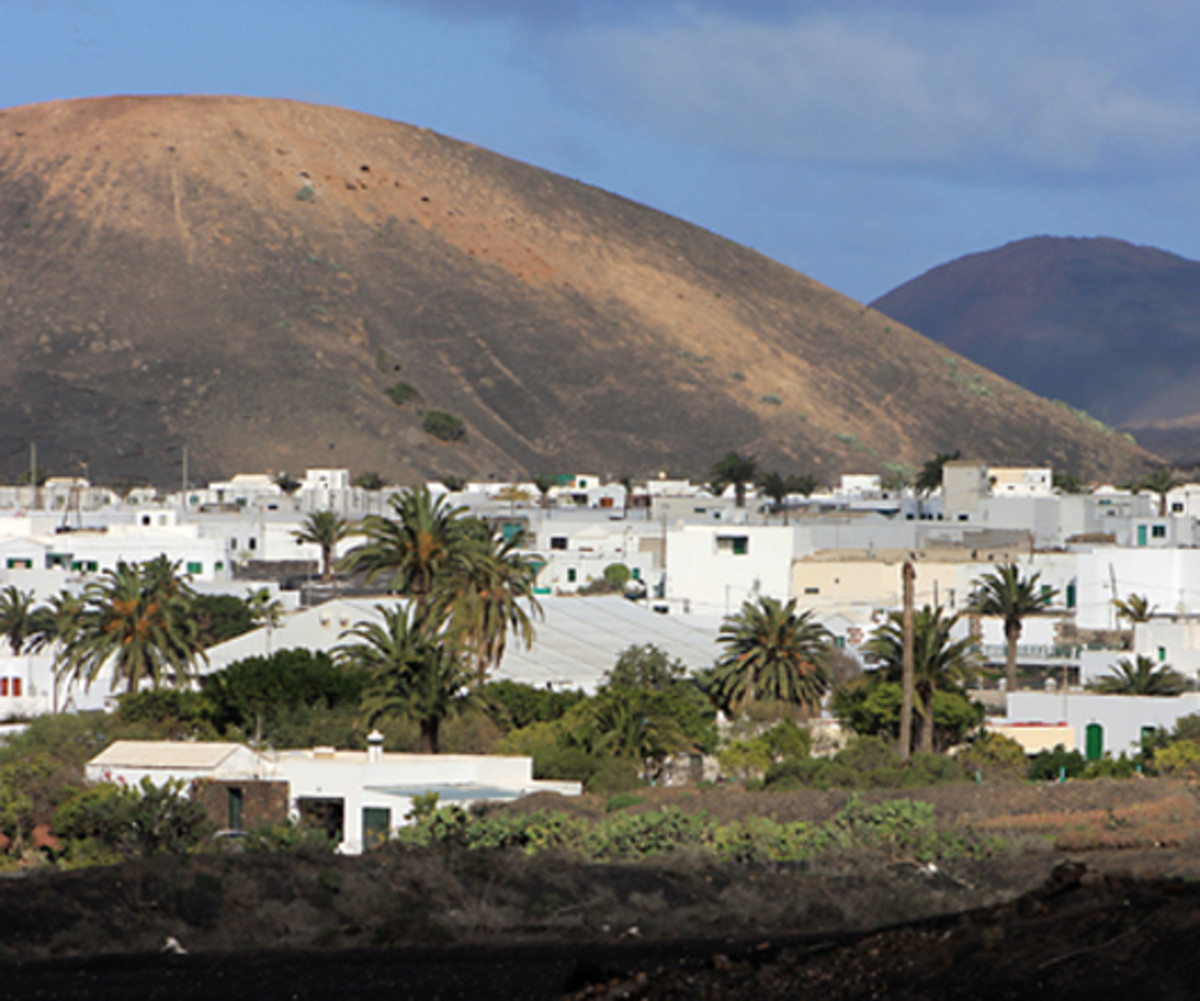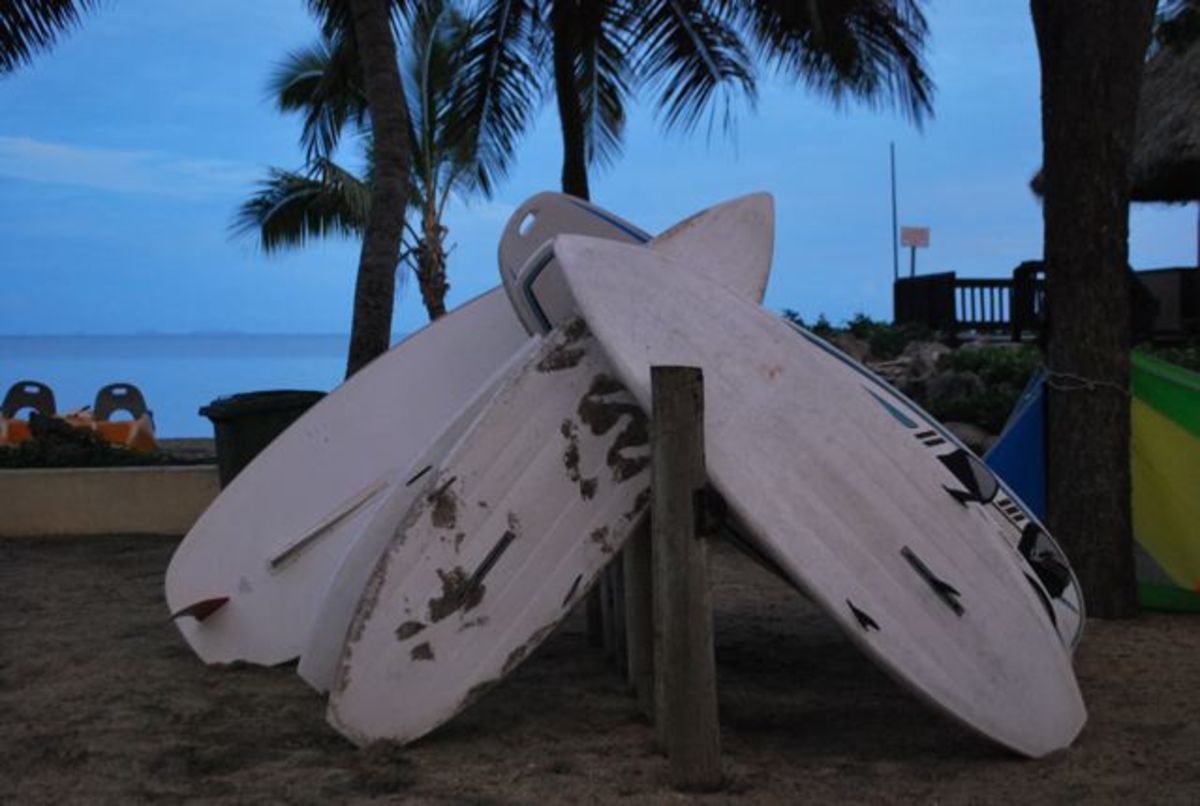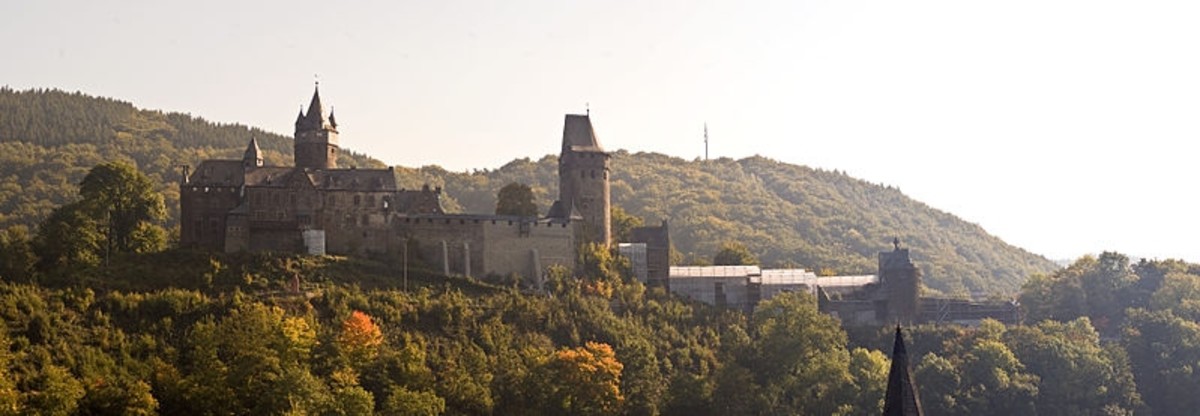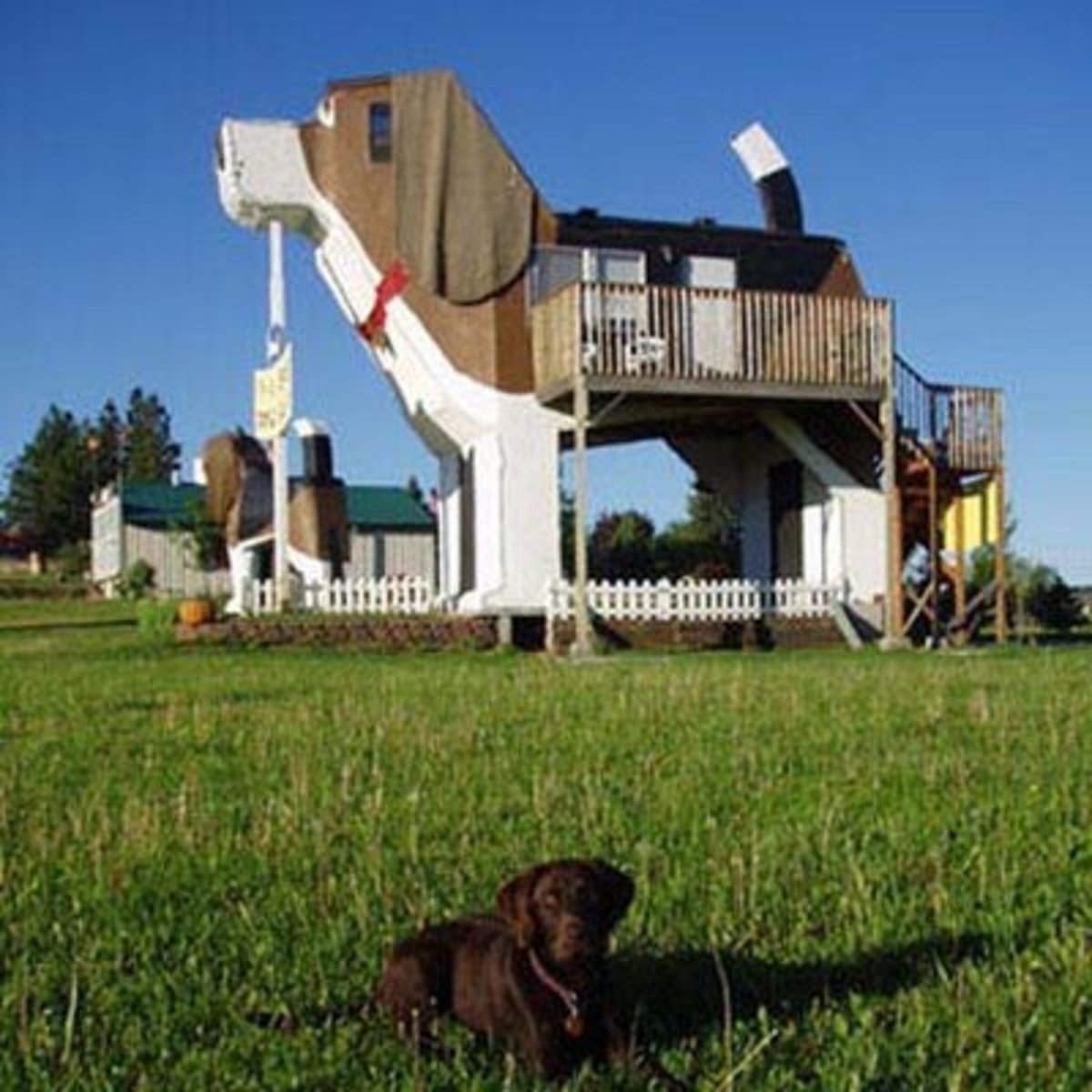Sandals Resort- Negril
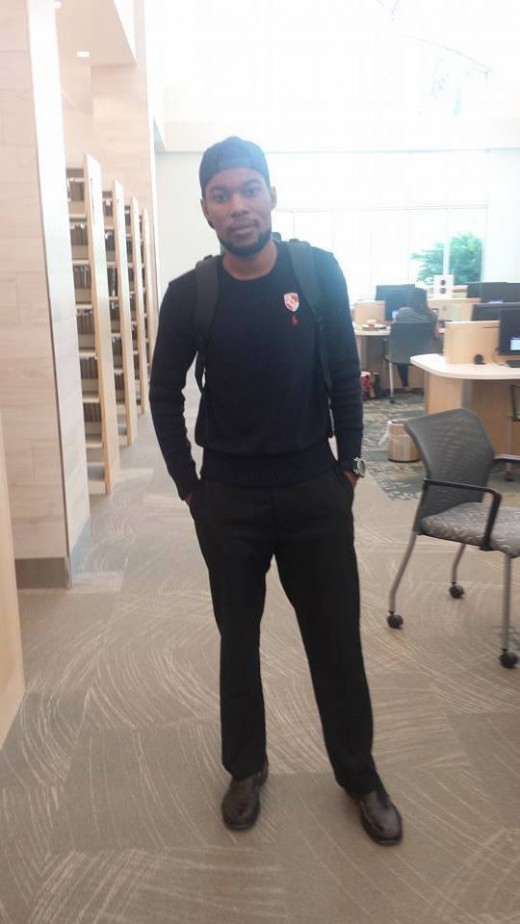
Understanding how and why Resorts exist and operate is important for very many reasons that affect the tourism industry and worth gaining a deeper perspective. Understanding the operations and regulations associated with owning and operating a resort opens many wonderful opportunities both personally and professionally. Island resorts particularly encompass a wondrous environment to explore and discover from the sheer beauty to the natural resources available to the transportation issues related to island living. Sandals Resort in Negril is a great example for showing a region of the world where tourism demand is high but the resort is at odds with the environment outside the resort. Through three solutions: Marketing, Sociological and Environmental, we are able to better understand the problems and find solutions to end this struggle. Financials are also included within this report to help show the struggle within the area.
Sandals Resort- Negril is a great resort. It is not located in the Unites States, but “Negril is a small (pop. 6,900) but widely dispersed beach resort town located across parts of two Jamaican parishes, Westmoreland and Hanover. Negril is just about one hour and fifteen minutes’ drive from Sir Donald Sangster International Airport, in Montego Bay” (Negril, 2014). The resort has a westernmost part and a west end part. “Westmoreland is the westernmost parish in Jamaica, located on the south side of the island. Downtown Negril, the West End cliff resorts to the south of downtown and the southern portion of the so-called ‘seven mile (11 km) beach’ are in Westmoreland. The northernmost resorts on the beach are in Hanover Parish. The nearest large town is Savanna-la-Mar, the capital of Westmoreland Parish” (Negril 2014). The resort is also great historically.
Many experts also try to find out where the name of the resort came from. “The name Negril is a shortened version of Negrillo (Spanish: Little black ones), as it was originally named by the Spanish in 1494. The name is thought by some to be a reference to the black cliffs south of the village. Another theory holds that because there was a vast population of black eels along Negril's coast, the Spaniards called the area Negro Eels which was shortened to Negrillo and then to Negril. Although Negril has a long history, it did not become well known until the second half of the twentieth century” (Negril 2014). Vacationers went to the resort, and the resort had been established in the 20th century. The resort also has an initial creator. It also has a hotel in it. As it is stated in the article titled Negril, “Negril's development as a resort location began during the late 1950s, though access to the area proved difficult as ferries were required to drop off passengers in Negril Bay, forcing them to wade to shore. Most vacationers would rent rooms inside the homes of Jamaican families, or would pitch tents in their yards. Daniel Connell was the first person to create more traditional vacation lodging for these ‘flower children’ when he set up the first guest house in Negril - Palm Grove. The area's welcoming and hospitable reputation grew over time and the first of many resorts was constructed in the mid to late 1960s. The first hotel in Negril was the Yacht Club by Mary's Bay on the West End” (2014).
The resort was also been assisted a lot by the road between Montego Bay. “When the road between Montego Bay and Negril was improved in the early 1970s, it helped to increase Negril's status as a new resort location. It was a two-lane paved road that ran approximately 100 yards (91 m) inland from two white coral sand beaches, at the southern end of which was a small village. The long paved road from the village ran north to Green Island, home to many of the Jamaican workers in Negril, and was straight enough to double as a runway for small airplanes, which was why there were lengths of railroad track standing on end along the side of the road - to discourage drug smugglers from landing on the road to pick up cheap cargos of marijuana” (Negril, 2014). Infrastructure in Negril also helps the resort extensionally and in terms of visitors. As it is stated, “After Negril's infrastructure was expanded—anticipating the growth of resorts and an expanding population, a small airport, the Negril Aerodrome, was built in 1976 near Rutland Point, alongside several small hotels mostly catering to the North American winter tourists. Europeans also came to Negril, and several hotels were built to cater directly to those guests” (Negril, 2014). Geographically, the resort is great to where, the country, it is situated. “The geography of Jamaica is diverse. The western coastline contains the island's finest beaches, stretching for more than 6 km (3.7 mi) along a sandbar at Negril. It is sometimes known among tourists as the ‘7-Mile Beach’ although it is only slightly more than 4 mi (6.4 km) in length, from the Negril River on the south to Rutland Point on the north”( (Negril, 2014).
The resort has a beach, and the beach is great. “For years, Negril's beach has been rated as one of the top ten beaches in the world by many travel magazines. The beach's length is the stuff of legends—it is actually little more than four miles in length, but tourists and travel writers insist on the ‘seven-mile’ label. The north end of the beach is home to the large, all-inclusive resorts, and to the south are the smaller, family-run hotels. This combination gives the Negril area a large variety of rooms, services and prices” (Negril, 2014). There are many stores by the beaches. “Many vendors and shops are located around the beach resorts; however they are predominantly located on the south end of the beach where there are fewer all-inclusive resorts. It is reported by one British newspaper that white women of middle age visit Negril in search of what they call the ‘big bamboo’” (Negril, 2014). In the past years, the resort has made some good achievements. The resort also consists of many different things. “The last few years have seen major development along the famed beach. The resorts include Couples Swept Away, Couples Negril, Sandals, Beaches, Samsara Hotel, Legends Resort, the Grand Lido, Riu Palace Tropical Bay, Riu Club Hotel and Hedonism II.The world renowned Hedonism II resort celebrating its 33rd year is one enduring hotel/resort which has been saved from bankruptcy and remains a unique place of adult fun. A branch of Jimmy Buffett's chain restaurant and bar, Jimmy Buffett's Margaretville, and a duty-free zone have also been added”( Negril, 2014). However, that does not stop the resort for facing some problems. The resort faces some environmental, marketing, and sociological problems. These issues may have some financial effects to the resorts. There are some potential long term effects on the players of the Sandals Resort- Negril that may need to be evaluated or to be resolved. The resort has some critique and relative players. Finally, when it comes to the resort, the dynamics of the situation to islands of study in “Creating Island Resorts” can be compared.
How environmental problems can negatively affect a business. What are they? “Environmental issues affecting business include industrial waste, sustainable development of raw materials and water and air emissions. These issues affect business because laws require businesses to change equipment and procedures to meet imposed standards, which costs businesses money” (William, N.D. p. 1). That can lead to a decrease in the business revenue or profit. Additionally, “Businesses that manufacture products create, at some point in the manufacturing process, manufacturing waste. Environmental laws and good environmental citizenship prohibit the indiscriminate dumping of manufacturing byproduct, so businesses must decide how best to dispense with it” (William, N.D, p. 1). Recycling problems can also be a factor in the problem but can also help. As William states, “Many implement recycling programs or others sell what they can of the waste to other manufacturers who use it in their own manufacturing processes as raw material. Either way, the effect is additional costs to the business in man hours, procedures, equipment and handling all specific to moving the waste products out of the business's manufacturing process and facilities”(N.D, p. 1). Williams goes on to give an example in terms of sustainable development of raw materials. He states,
All manufacturers use raw materials to put together their goods. When these raw materials are natural, such as wood, laws and good environmental citizenship require that the business take measures to replace what it uses. Christmas tree farms are a prime example, as sellers buy from growers who harvest and replant in order to keep from depleting entire forests of naturally occurring pine trees. Again, the effect on business is cost in terms of higher raw materials costs, which usually include the supplier's cost to “replant” or “restock” the natural raw materials ( Chron. Com, N.D. p. 2)
William also gives an example of an environmental issue that can negatively affect a business financially. He mentions emission as one of them. As he states, “Manufacturing processes often generate air and/or water emissions, which include particle or chemical-filled smoke, ash and particles and chemicals that seep into ground water through run-off. Environmental protection laws require businesses to protect the environment from exposure to these emissions. Remedial process include placing screens of specified gauges over smoke stacks, filtration of waste water and lining of retention ponds with clay and poly liners”(N.D, p. 2) William goes on to talk about some new regulations that have been implemented. As he states, “New regulations are implemented frequently that require retrofitting of manufacturing facilities with increased protections, such as screens of even finer gauges and pond liners of newer and safer materials. All of these measures are costly to business and affect businesses first by decreasing profit margins” (N.D, p. 2). In terms of sociological effects, “The social environment of a business can be integral to its success or failure. Employees are often influenced by the context in which they work and this can have implications for productivity. Some effects of the social environment are easier to measure than others. Employers who take the necessary strides to create a positive and harmonious social environment in the workplace can set themselves up for future success” (Lewis, 2014. P.1). Lewis (2014) states team work as one of the things that can negatively affect a business in terms of sociological environments. He states,
One way in which the social environment affects the workplace is in the way that it either inspires or discourages employee cooperation. In businesses with a positive social environment where employees get along and are generally positive in their relationship to one another, cooperation and teamwork are more likely to exist than in a negative social environment. Negative social environments will generally foster dissent and strife among workers and destroy the ability or willingness of employees to work together (Chron. Com, 2014. p. 1).
Lewis (2014) goes on to indicate that “job satisfaction as a part of the issues. He states that “the social environment of the workplace can also have an effect on an employee's job satisfaction. In businesses where employees experience a positive social environment, they are more likely to have a greater sense of job satisfaction and enjoyment. In a job environment where negativity is the norm and employees are constantly in conflict with one another, workers are more likely to dread work and not have a positive assessment of their employer” (Chron. Com, 2014. p. 1). Customers and leadership elements are also two of the elements. In terms of customers, “the social environment of a business can also have an impact on the type and number of customers it attracts. In a business environment where employees are generally positive, upbeat and cooperative, customers are more likely to appreciate the atmosphere they experience when interacting with employees”(Lewis, 2014. P.1). Lewis (2014) also talks about how customers’ negative experience can affect a corporation. As he states, “Customers who experience a negative social environment may be more likely to avoid a business altogether, especially if the business has a competitor that is conveniently located near the customer. Customers choose which business to patronize based on various factors, and the social environment can be the deciding factor for some” (Chron. Com, 2014. p. 1). Lewis (2014) goes on to talk about leadership can affect a business. In terms of leadership, he states that “a positive and nurturing social environment for workers is one that can engender positive change within the workplace. It can also lead to the creation of leaders within the business itself. Businesses that constantly emphasize positive reinforcement, self-improvement, and education of employees are likely to cultivate leaders from within the organization. Some may go on to pursue positions of leadership within the company or industry, while others may simply assume a lesser leadership role within their current occupation” (Chron. Com, 2014. p. 1). Keeping up with the market or planning ahead problems may be some marketing problems that may affect the resort. “Market research isn't something you do as a one-off when you launch your business. Business conditions change continually, so your market research should be continuous as well. Otherwise you run the risk of making business decisions based on out-of-date information, which can lead to business failure” (Info Entrepreneur in The challenges of growing a business - and how to meet them). If the manager of the resort has trouble planning ahead, that can lead to trouble. “The plan that made sense for you a year ago isn't necessarily right for you now. Market conditions continually change, so you need to revisit and update your business plan regularly. As your business grows, your strategy needs to evolve to suit your changed circumstances. For example, your focus is likely to change from winning new customers to building profitable relationships and maximizing growth with existing customers. Existing business relationships often have greater potential for profit and can also provide reliable cash flow. Newer relationships may increase turnover, but the profit margins may be lower, which may not be sustainable” (Info Entrepreneur in The challenges of growing a business - and how to meet them).
Sandals Caribbean Based Resort Hotel Chain has only been recently established, and yet it has shown to be highly successful thanks to its innovative marketing concepts. This analysis will cover the positive aspects Sandals is covering and also highlight its weaknesses, with constructive criticism and advising formulating marketing strategies to address their issues.
To start with, it is worth mentioning Sandals and Beaches resorts offer an innovative concept in their all-inclusive environments, adamant on delivering their guests completely worry-free accommodations. Customers do not pay not only for food and activities, but also not for babysitting, any entertainment at the resort, among other amenities they could capitalize profit from by selling separately with additional fees.
The resort also employs a role called guest coordinators, who are trained to become experts in human relations specifically for the guests. They make the vacationers feel at home, coordinate their activities if they wish to, and make sure everything works the way they desire it to be. This is worth mentioning because both, especially the later, should be highlighted when performing advertisement. Although the chain does mention their all-inclusive practices, they do not highlight their unique amenity of guest coordinators, which they should let their potential customers be aware of in their brochures and websites. One last great amenity that is also worth mentioning when marketing (which they do cover) is their wide array of catering to the couples-only market. They possess three different levels of suites: the basic all-inclusive suites, the crystal suites that enjoy their own private pool and the millionaire suites that are complete separate villas with butler service. This is actually marketed in their website, and they do cover it properly.
With their main amenities highlighted, up next are the opportunities that can be taken marketing-wise for the Sandals resort which would be of their great benefit. For instance, where and to whom they should market. The company should most likely take the opportunity to promote their resorts at all bridal and child/baby expositions in major cities, in a way to reach the largest numbers of their main target market: couples. The resort can make use of high definition, interactive sales pitches that may enable honeymooners, and also families, to reserve their vacations on the spot. Sandals may also even take a chance on marketing in other target demographic related shows or events, such as the British show National Wedding Show, attending every February as a chance to market their resort. Other possibilities of expanding their exposure would be to create joint ventures, such as with David’s Bridal, creating a presence on all of the major wedding planning websites. Parent’s Magazine is also a good option to take into account.
Another issue to tackle appropriately is the current economic downturn. The resort needs to play up the “all-inclusive” angle for all their resorts, not Negril’s alone. By crafting a marketing campaign that emphasizes on the money-saving features of their destinations, the resort may not only approach a wider array of customers of the low end of the demographic, but also tip the scales against the competition. The aspect that their guests do not need to worry about extra expenses should be highlighted as well.
Five years ago, Sandals announced that they would partner up with Martha Stewart to launch Martha Stewart Weddings Program in the Caribbean. Guests would be able to book a Martha Stewart-designed wedding at any of the twelve Sandals Resorts, Negril’s included, as well as any of their four Beaches Family Resorts. They would also include Martha Stewart Crafts classes for adults at the resorts and craft camps for the families. The Futures Company stated that destination weddings are on the upswing with 31% of brides of ages 20 to 30 with plans to have a destination wedding. Previous studies indicated destination weddings represented only 10% to 19% of all weddings. Partnership Activities such as these need to continue today and in the future to promote not only couple customers but also more activities as a positive externality to all customers, couples and families alike.
Although Sandals possesses many great potential opportunities to tap into in order to promote their growth, Sandals also has a few weaknesses in their current decision-making, or lack thereof, processes. Many factors are left as untapped resources which could easily promote their advertising and their global image. For instance, the Sandals resort should really communicate their views on environmental issues. Sandal’s beach resort has received a Green Globe Certification for their commitment to natural resources, and yet, they do not advertise or communicate it. In this economic downturn, customers wish to feel good about spending their money wisely, especially if possibly in socially responsible ways, and the Green Globe Certification is highly prestigious. All they need to do is market it, since they already acquired it.
Another important issue to address, even though it is not related to Negril’s resort but more to the company as a whole, is their new resort in Barbados. The company spent a substantial amount of capital setting up their new resort in this location, only to have it sit idly by, unoccupied. The government of Barbados does not allow their beaches to be blocked off by fences, and Sandals likes to do so to keep their guests separate from other people. They have been at odds about this issue since 2001 and their fully completed resort is not being put to use, not yet to have had its first guest. I would recommend trying to be flexible or even make an exception in this case, to not let this asset sit idly by and allow it to generate business. By hiring security instead, they could easily patch the issue and start generating profit already. Once this resort is online, make sure to also advertise it. Perhaps marketing differently could also make it fit for having an open beach. Nevertheless, there is no excuse to leave it offline.
As with all tourist destinations and attractions, they rely on a healthy economy in countries whose citizens have proper discretionary income to spend and to be able to vacation regularly. The American trend towards “staycations” will cause their revenue to decrease. Thankfully their demand is not so flexible, but nevertheless minimizing costs and lowering prices, or offering discounts is an option to take into account whenever possible to apply without affecting quality of service. Lastly, a final recommendation would be to position themselves better against their competition: other luxury resorts. Other popular destinations such as Breezes All-Inclusive Resorts among others for honeymoons and families all possess the all-inclusive feature, so it is imperative to market their unique amenities to gain a competitive edge against them.
The case study “Creating Island Resorts” can be utilized by many people to critique their island resorts. The relative players in the study were the Mamanucas (Fiji) and the Whitsundays (Queensland), both well-known and developed for tourism on their beautiful secluded islands. The Mamanucas and the Whitsundays are both located in the south-west Pacific Ocean, far from the world’s major tourism generating markets. Despite this, tourism is the key economic activity in both the Mamanucas and the Whitsundays (King, 25). The Whitsunday group of islands is larger in size than the Mamanucas, consisting of seventy-four islands as opposed to twenty-eight. There are also twelve resorts in the Mamanucas as opposed to only eight in the Whitsundays (King, 25).
According to the report however, the Whitsundays Island is growing much faster than the Mamanucas in terms of tourism. Table 4.1 in the report outlines the very different scale of operations in the Whitsundays and Mamanucas with the accommodation capacity of the Queensland group almost three times that of the Fiji group. Since tourism is an international phenomenon, a key structural issue for a tourism destination region is the extent of the linkages with international capital, labor and demand. The presence of transnational corporations can potentially provide access to all these resources for developing countries. The Whitsunday region gets a lot more transnational chains within the island where as, the Mamanucas has struggled with low occupancies and international chains have been reluctant to invest or manage in Fiji (King, 82).
In order for an island to become successful with tourism, receiving international backing is extremely important. When you have hotel companies wanting business in your area you get a lot more marketing and travel agents want to book with you more often. These two islands are very similar in some ways, but the Whitsundays have become more internationally recognized because they have better connections to worldwide companies. Sandals are one such company that has the backing needed to compete and succeed in tourism today. They have multiple locations on Jamaica alone, let alone elsewhere in the world. This is a company that is well known and travel agents are more than willing to book trips to these resorts. Negril has many attributes, such as the seven mile beach that allows the resort to flourish, but the fact that it is part of such a large company helps get the occupancy they want and need to stay open.
In terms of the Sandals resort in Negril, the website gives a very descriptive introduction that states: “With its blissful ambience of laid-back cool and uninhibited revelry, Sandals Negril epitomizes the free-spirited personality that has long made Negril the exotic playground of choice for fun-loving pleasure seekers. Here on sands of pure white kissed by a sea of aquamarine, this decadently carefree resort is nestled within lushly landscaped acres along the island's legendary Seven-Mile Beach, putting you closer to the water than anywhere else in Negril. A love for Mother Nature ensures that Jamaica's hippest resort is also it’s most green - awarded an EarthCheck Double Platinum Certification for an unwavering commitment to environmental excellence for over a decade. Come let your love blossom amidst the barefoot elegance and chill-out vibe that is uniquely Sandals Negril” (Sandals Resort). This statement from the Sandals website says all but one thing: what the outside world of Negril is like between the locals and the tourists.
The case study “Creating Island Resorts” asked a question that I think is important from a Sociological stand point of any island resort. They asked “To what extent can we regard island resorts as communities in their own right, and to what extent they are more likened to large hotels supplemented with certain ancillary facilities and activities?” (King, 185). A wide range of social encounters and activities take place in and around resorts. Although resorts like to keep you from venturing out to the local areas, especially unsupervised by staff members, this is something that benefits not only the tourists but the economy of an island such as Jamaica. For example, the craft markets are a major activity outside of the Sandals Negril resort that was established by the government to allow the local people a place to sell their products to tourists. They are strategically placed where tourists have to walk through them in order to get to their destinations. This helps the locals provide for their families while also reaching past the invisible barrier between locals and tourists. When you are on vacation, you don't want the locals to be staring at you every time you leave the resort, and they don't like to be stared at by all the tourists either.
According to the study, tourism settings are examples of how “modern society is rapidly institutionalizing the rights of outsiders to look into its workings” with visitors wanting to see how local residents live (King, 186). This is not necessarily a bad thing that they are interested in the “outside world” of the resort. Even when you are walking along the Seven-Mile beach, there are security guards surrounding the resort with machine guns protecting the tourists from the locals. Although it may seem necessary in some places, this could be very frightening to the tourists and could also cause more problems between the locals and the resort. Technically, most of the workers within the resort are locals from the area. It’s inevitable that you will cross paths. Due to the employment laws in Jamaica, an employer may only appoint a foreign national if they have already advertised it to the local Jamaican citizens (Cameron). There are many countries where if you are not a citizen of the country, you cannot own a business without being married to or being partners with a local citizen. I found this interesting but also think it is a great idea. A lot of people would like to go open up their own business in a foreign country such as Jamaica and make “easy money”. The fact that some of these places don't allow that to happen is really smart. It keeps jobs closer to home and for the locals only. Seeing their living situations firsthand, it is imperative that we recognize that they need the jobs that Sandals can give them. They need the income so they can survive.
Something that can be done to help ease the tension between the locals and the tourists at the Sandals resort would be to incorporate more things where they need to interact. Things such as the craft markets, having events on a public beach, taking excursions to local restaurants or cultural events will give them all a chance to get comfortable around each other. The fact that the resort is at odds with the outside world is something that can easily be fixed. Yes, have security guards at the entrance to the resort, but the beach should be off limits unless there is a very real and apparent threat to the tourists. Acknowledging these problems and creating a solution to rectify situations like this can release so much tension and possibly make things much easier between the resort and the locals. Remember as a tourist that these people are trying to make a living to survive in an area that is not the greatest, while everyone at the resort flourishes in wonderful spa treatments and endless food and drinks. Acknowledging the problem is the first step in making a difference. Tip the people that work at the resort, thank them for all that they do, and understand that they have problems of their own that are most likely worse than yours. While you are living in luxury, they may not have a home to go home to at the end of the day.
Understanding how and why Resorts exist and operate is important for very many reasons that affect the tourism industry and worth gaining a deeper perspective. Understanding the operations and regulations associated with owning and operating a resort opens many wonderful opportunities both personally and professionally. Island resorts particularly encompass a wondrous environment to explore and discover from the sheer beauty to the natural resources available to the transportation issues related to island living. Gaining a better understanding behind the dynamics associated with cultural diversity and social interactions gained through resort developments on islands have allowed for community to sustain. Travelers are willing to spend a little extra on amenities and luxury especially when Corporations that own and operate resort facilities give back to the community.
Sandals Resorts, in Jamaica especially, the Western part of the Island, have seen its fair share of challenges through the years. Understanding where the work force would come from to support the “all inclusive” environment- Sandals had to overcome the challenges with the social economic deprivation that Jamaica encounters. Some of the enhancements that have helped Sandals create their mega resorts have been the institution of a Foundation to provide local communities support through social services and planning along with ongoing education. The foundation also provides an avenue to preserve the environment through educational programs to the local communities. Reaching the youngest locals through educational endowments and community participation has proven to be one of Sandals greatest assets. Bringing first world intuition and education unto third world or developing nations through philanthropy will encourage future growth and development in the area of tourism.
The Sandals Foundation has numerous programs in place that have assisted in the local community’s ability to meet the demand of education and health care to sustain a workforce. Some of the current opportunities involve supporting the reduction of the carbon footprint in Jamaica. The Foundation has teamed up with a National Tree Planting Day. ATL Automotive and the Jamaica Conservation and Development Trust (JCDT) in conjunction with the Sandals Foundation have committed to planting a tree for each car sold which will help to reduce the effects of carbon dioxide and other greenhouse gases emitted by motor vehicles. Supporting worthwhile endeavors like this bring about an awareness that is so necessary in our world where the bottom line has been more important than the overall health of our planet. Supporting the health of the ocean that surrounds the islands has also been an ongoing effort and recently adopted by the Sandals Foundation through educational promotions. Saving the reefs as well as sea animal life continues to be adopted by many organizations in Jamaica as around other tourist destinations dependent upon water activities. Sandal’s has finally, encouraged more support through their foundation, to educate and promote awareness in a culture that has only known extreme poverty and crime. Employees at Sandals Resorts are encouraged to volunteer in the communities that surround their resorts environments. Leading by example always has a profound impact on the ability to make positive changes in the world. The Foundation website has numerous activities planned and executed throughout the Caribbean that correlate with the needs of the particular island that house the resorts. Some needs are larger than others because some islands are larger than others and need more support. Some of the islands have larger local inhabitants that require greater care and support based upon their history. Because Jamaica was a slave trading island with plantations to support as tourism became more of an economical factor and education seems to be the driving force towards change, the Sandals Foundation has been a blessing to both tourism philanthropy as well as the economic impact on the culture, environment and the inhabitants of the island. Being good stewards of resources both natural and human continues to be the developing outcomes for harmony and peace.
Through education, changes can be made which brings this course full circle to understand how studying Resort creation and operations will promote a healthier environment for not only the local communities affected by the resorts but also by the visitors and tourists that travel for leisure and for years to come. Learning from other case studies like “Creating Island Resorts,” and studying the comparisons between the Whitsundays and the Mamanucas has afforded the ability to clearly understand and evaluate other regions in the world where tourism has become the economic mainstay. Encouraging balance through government regulations and environmental impact while taking into consideration the social interactions with the native local population can foster harmony and balance in a very unbalanced world. Continually evaluating and researching better ways to meet the growing demands of leisure activities will enable the twenty first century to expand and capitalize while maintaining the cultural integrity of developing nations.
References
See: Negril 2014, October 3/ 2014.
See: How Does the Social Environment Affect a Business? , Chron. Com, 2014. P 1-3 by Jared Lewis. October 3/ 2014.
See: Info Entrepreneur in The challenges of growing a business - and how to meet them, “N.D” . October 3/ 2014.
See: Environmental Issues That Affect Business Jennifer Williams. Chron. Com, 2014. p. 1. October 3/ 2014.
King, B. (n.d.). Creating Island Resorts. Retrieved October 12, 2014, from https://online2.lynn.edu/bbcswebdav/pid-269328-dt-content-rid-865934_1/courses/HA530.I.FALL.I.14/Creating Island Resorts eBook(4).pdf
Cameron, H. (n.d.). Jamaica Employment Laws. Retrieved October 12, 2014, from http://traveltips.usatoday.com/jamaica-employment-laws-61992.html
Sandals Resorts. (n.d.). Retrieved October 12, 2014, from http://www.sandals.com/main/negril/ne-home/
American resort development association states: Consumers deserve protection and transparency in all leisure and vacation product purchases. (2006, Aug 15). Business Wire Retrieved from http://search.proquest.com/docview/445183020?accountid=36334
SKIERS MAY FIND 'GREEN' SLOPES ; SOME RESORTS USING CLEAN ENERGY TO LESSEN IMPACT ON ENVIRONMENT; THE SMART TRAVELER. (2006, Dec 03).
Smight, T. (2007, Nov 30). 10 great places to kick back while giving back. USA TODAY Retrieved from http://search.proquest.com/docview/409008733?accountid=36334




